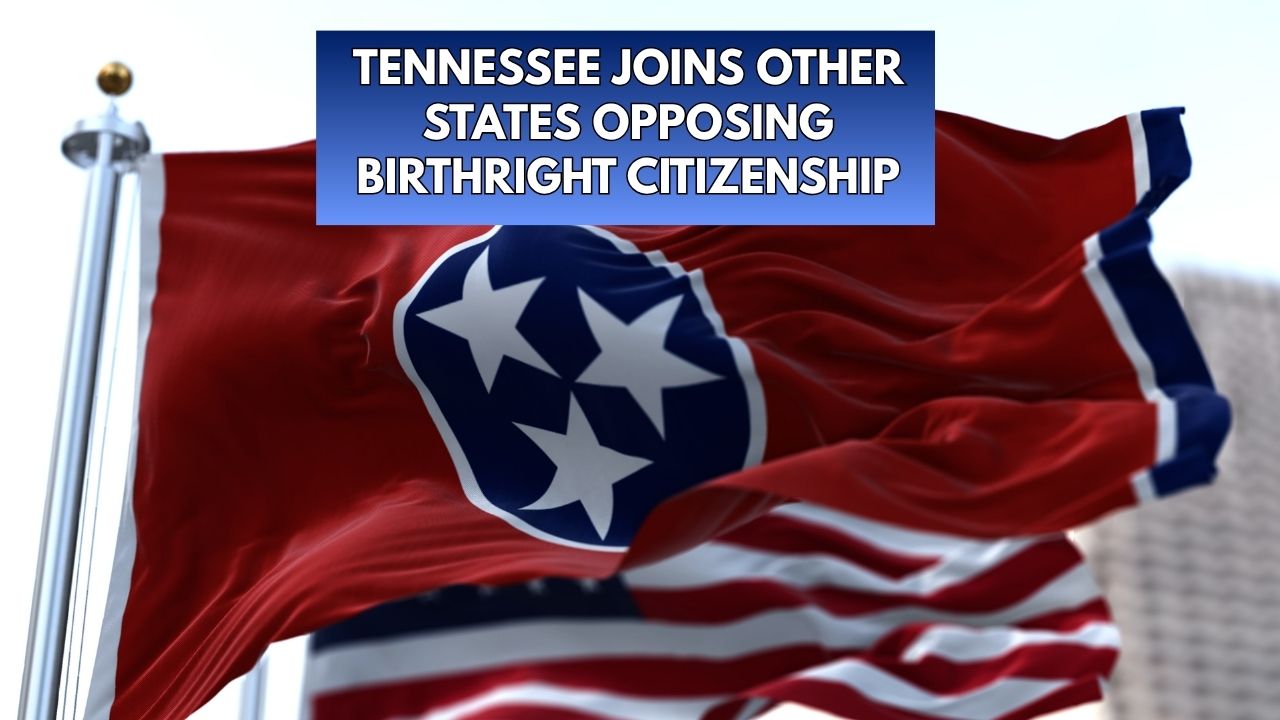Tennessee Attorney General Jonathan Skrmetti and other attorneys general across the U.S. have filed an amicus brief supporting a birthright citizenship challenge to the U.S. Supreme Court.
Skrmetti, and 24 other Republican AGs, are asking SCOTUS to make the distinction that the Fourteenth Amendment’s citizenship clause does not provide automatic citizenship to everyone born in the U.S. The state attorneys wrote in their legal brief that they have a unique interest in seeing birthright citizenship limited because it incentivizes illegal immigration, which they said has negatively affected their states. Republicans AGs from Pennsylvania, Virginia, Ohio and New Hampshire did not join the amicus brief.
Recent years have seen an influx of illegal aliens — over 9 million — overwhelming our nation’s infrastructure and its capacity to assimilate,” they wrote, adding that their states therefore face “significant economic, health, and public-safety issues from policies holding out a ‘powerful incentive for illegal migration,’ … beyond what the Citizenship Clause requires,” the amicus brief notes.
This move comes nearly one month after President Donald Trump’s administration asked SCOTUS to uphold the president’s birthright citizenship order, which declares that children born to parents who are in the country unlawfully or temporarily are not citizens of the U.S. The Supreme Court has not yet decided whether it will take up the president’s petition that requests SCOTUS reinterpret the 150-year-old Constitutional Amendment and do away with automatic citizenship.
“The idea that citizenship is guaranteed to everyone born in the United States doesn’t square with the plain language of the Fourteenth Amendment or the way many government officials and legal analysts understood the law when it was adopted after the Civil War,” Skrmetti said in a press release.
“If you look at the law at the time, citizenship attached to kids whose parents were lawfully in the country. Each child born in this country is precious no matter their parents’ immigration status, but not every child is entitled to American citizenship. This case could allow the Supreme Court to resolve a constitutional question with far-reaching implications for the States and our nation.”
Skrmetti and the other attorneys general’s brief states that evidence from the 1860s through the early 1900s supports their interpretation.
“Congressional debates, executive branch practice, and legal commentary from the Reconstruction Era consistently emphasized that citizenship required parental domicile and allegiance to the United States, not temporary or unlawful presence.”
The brief recognizes that many people now cite the 1898 Supreme Court case United States v. Wong Kim Ark for the proposition that the Citizenship Clause guarantees birthright citizenship even to children born here to transient or illegally-present parents. But as the brief notes, the parents in that case were lawfully present and permanently domiciled in the United States.
SCOTUS is expected to decide in a few weeks, whether or not to take up the case.
Steve Gill is editor and Publisher of TriStar Daily.















